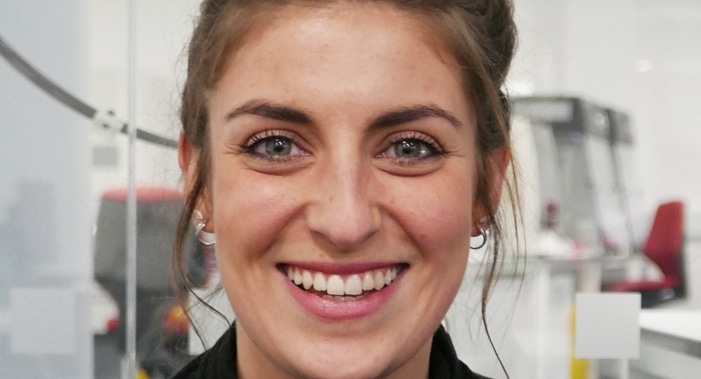In November 2020, Compass Pathways joined the Psychiatry Consortium, an international collaboration to accelerate drug discovery and development in areas of urgent, unmet medical need. Here we speak to Laura Arjam, Psychiatry Consortium Programme Manager, about her role, the Consortium, and what inspired her to work in mental health.
What is your role at the Psychiatry Consortium and what do you do day-to-day?
I’m the Psychiatry Consortium Programme Manager and I’m responsible for the delivery of this exciting initiative! In a nutshell, my responsibilities are three-fold …
Firstly, a key aspect of my role is to engage the research community, so I spend a lot of time talking to stakeholders and arranging workshops and events to bring together individuals from all stages of the psychiatric drug discovery pipeline, including scientists, clinicians, patients and research funders, to understand the challenges we face as a community and opportunities for us to work collaboratively to overcome them.
Secondly, I’m responsible for the management and delivery of the project portfolio, which involves actively seeking academic partners, reviewing proposals for projects and working with academics and our partner CROs to develop project plans from their initial ideas. Once projects are up and running, I also oversee their delivery to ensure they are meeting their aims.
Finally, I lead the daily operational delivery, working closely with our member organisations to ensure the governance, legal and financial structure of the Consortium is robust.
The broad remit of my role means every day is different, which I really enjoy.

We bring together individuals from all stages of the psychiatric drug discovery pipeline to understand the challenges we face as a community and opportunities for us to work collaboratively to overcome them
What inspired you to a career in psychiatry/mental health?
For as long as I can remember, I’ve been fascinated by the brain – both how it works and how changes in its function and development can lead to mental health conditions. To further my interest, I studied neuropharmacology at Kings College London, followed by a PhD at the Institute of Psychiatry on the topic of ‘The Neuropharmacology of Autism Spectrum Disorders’. There’s a huge amount that we still don’t know about the brain, which can be daunting. Working closely with patients during my PhD inspired me to continue working in this field, as I believe that research can positively impact their lives.
What is the most rewarding part of working at the Consortium?
Launching projects! The Consortium seeks innovative project ideas from the research community – developing these projects from their initial idea is a real collaborative effort that can take some months to ensure every aspect is robust and meets industry standard. It’s really rewarding to see these great ideas come to fruition with the collective expertise of the Consortium.
How do partners like Compass contribute to advancing science and understanding in the Psychiatry Consortium?
As a Psychiatry Consortium Partner, Compass will contribute to providing essential and extensive knowledge of the drug discovery process, to ensure all our projects are developed robustly, and therefore have the highest chance of success. Our Partners also contribute to valuable cross-sector discussions around the challenges that face the psychiatric research community and add their insight and input so we can begin to collectively address the issues.
Our vision is a world of mental wellbeing, what does mental wellbeing mean to you personally?
For me, mental wellbeing is about being in a state of ease and being able to face everyday challenges with confidence and self-belief. It’s often a difficult state to maintain when our personal life and work life are full of ups and downs – I find that practising yoga really helps me to focus on the present moment, which I think has a positive effect on my mental wellbeing.

For me, mental wellbeing is about being in a state of ease and being able to face everyday challenges with confidence and self-belief

